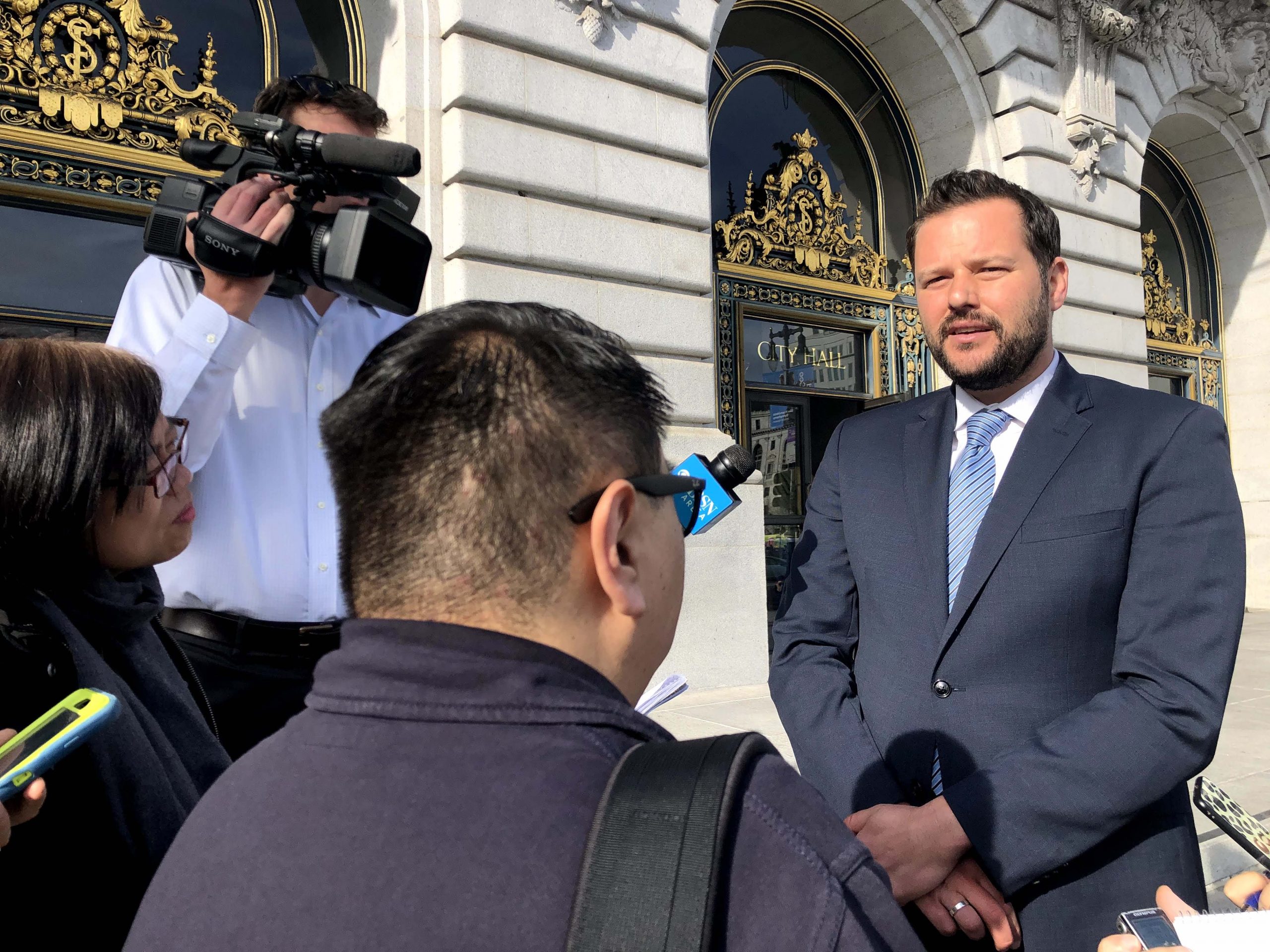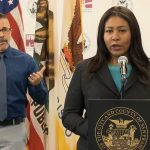Political leaders and union advocates in California are pushing for new labor protections and expanded workplace rights in response to the coronavirus pandemic’s impacts on workers and the economy.
San Francisco supervisors voted 11-0 March 31 for a nonbinding resolution calling on Mayor London Breed to use her executive powers to force large businesses, in particular supermarkets and food delivery — “essential services” still operating during the lockdown — to improve workplace benefits and protections for front-line retail workers.
“We’ve heard a lot of workers’ concerns,” Supervisor Matt Haney, the resolution’s chief sponsor, said in a phone interview. “These workers have a job today that looks a lot different than it did a couple of weeks ago.”
The resolution, backed by United Food and Commercial Workers Local 5 and the San Francisco Labor Council, demands higher pay, paid sick leave, more personal protective equipment and childcare benefits for workers who are now risking their health to help those ordered to stay at home. These demands are also being negotiated with individual employers, including Safeway, which recently reached an agreement with Local 5.
One side effect of the pandemic appears to be a surge in labor unrest across the country. As federal relief begins to flow to the unemployed and shuttered businesses, and the medical and economic disaster of COVID-19 deepens, some are demanding new regulations and stricter enforcement of existing rules — even a “fundamental restructuring” of the workplace.
Health care workers on the front lines of the pandemic have been protesting what they see as inadequate safety standards. In New York City, the epicenter of the pandemic, Amazon fired a worker for showing up at a protest he had helped organize. In doing so, he defied the company’s directive that he quarantine at home because he had tested positive for the coronavirus. New York Attorney General Letitia James condemned the dismissal and called for a federal investigation.
Supermarket clerks, restaurant cashiers and delivery drivers, and other “essential workers” still on the job, now put their health on the line every time they clock in. A Whole Foods employee at the company’s Stanyan Street store tested positive for coronavirus, according to KQED News — as has happened in other cities. The store remained open following what a store spokesperson described as an extra round of cleaning and disinfection.
Local Lawmakers’ Support for Labor Actions
To protest the company’s policies, employees have formed a group known as Whole Worker, which has launched a union drive and staged a nationwide sickout this week. The company said the effort was the work of “a small but vocal group.”
Political leaders in union-friendly San Francisco characterized the labor actions as a righteous battle that’s just getting started.
“These are basic rights that workers should have especially during a crisis like this,” said a spokeswoman for District 10 Supervisor Shamann Walton. “If we as a community deem these workers essential, then we should ensure that they are able to work in a safe and sustainable environment.”
Business leaders seem loath to wade into public controversies over the current labor militancy. A spokesman for the San Francisco Chamber of Commerce declined to comment for this story, calling the situation “complicated.”
Steve Smith, communications director for the California Labor Federation, AFL-CIO, an umbrella group whose 1,200 member unions represent about 2.1 million workers, said the economic meltdown caused by the pandemic exposes deep fissures in the workplace that demand immediate attention.
Workers’ Bill of Rights Proposed
The federation has floated a “Workers’ Bill of Rights During the Covid-19 Crisis,” and sent a letter listing its demands to Gov. Gavin Newsom, state legislators and agency heads. These include stronger union organizing rights, increased corporate accountability, and new protections for freelancers, immigrants and other “vulnerable workers.”
The labor group warned that employers may soon try to roll back workplace standards to help speed economic recovery. “A crisis is not an excuse to suspend important worker protections that are critical to preventing injuries, wage theft, or exploitation by employers,” the group wrote in its March 27 letter to Newsom.
Already, there are hints of a coming battle over worker protections. “We’ve not received pushback from the administration or specific legislators yet,” said Smith, but, he added, “We are hearing that the business community — restaurant association, chamber and others — are vocalizing their concerns to both legislators and the governor.”
Smith defended labor’s efforts, noting, “The measures we’re advocating are very specific to protecting workers during the crisis, but we also have to defend against corporate efforts to try to roll back labor laws using the crisis as an excuse.”
While the current focus is on protecting workers facing coronavirus exposure and boosting aid to the newly unemployed, Smith said the next phase of the crisis response “will have to address more fundamental issues,” such as the proper classification of employees and independent contractors
Beyond “temporary relief for those in need,” Smith said, “we need to restructure the economy, with a stronger safety net in place for all workers. We’ve got to make some fundamental changes that create more of a balance in power.”










